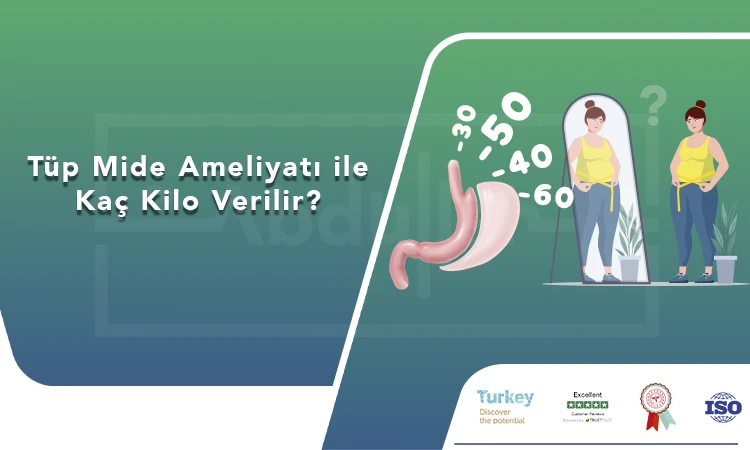Gastric sleeve surgery, also known as sleeve gastrectomy, is one of the most commonly preferred surgical methods in the treatment of obesity. During this procedure, the stomach volume is significantly reduced, and the area responsible for secreting hunger hormones (such as ghrelin) is removed. As a result, patients feel full with much smaller portions and experience a considerable reduction in appetite.
But the most frequently asked question is: How much weight can actually be lost after gastric sleeve surgery?
The weight loss process after surgery varies depending on individual factors such as age, gender, starting weight, metabolic rate, level of physical activity, and dietary habits. However, a general projection can be outlined.
Expected Weight Loss After Gastric Sleeve Surgery
| Time Period | Average Weight Loss |
|---|---|
| 1st Month | 8–12% of starting weight |
| 3rd Month | 20–30% of starting weight |
| 6th Month | 40–50% of starting weight |
| 12th Month | 60–80% of starting weight |
For example, a patient weighing 120 kilograms (265 lbs) before surgery may expect to lose approximately:
- 10–15 kg (22–33 lbs) by the end of the 1st month,
- 25–35 kg (55–77 lbs) by the end of the 3rd month,
- 50 kg (110 lbs) by the end of the 6th month,
- 70–80 kg (154–176 lbs) by the end of the 12th month.
These results depend on how closely the patient adheres to the postoperative diet program and physical activity recommendations.
Factors Affecting Weight Loss After Gastric Sleeve Surgery
Age: Younger patients tend to lose weight faster due to a higher metabolic rate.
Gender: Men often lose weight more rapidly compared to women.
Starting Weight: Individuals with higher initial weight may experience more dramatic results in the early months.
Diet and Exercise: Adhering to dietary guidelines and engaging in regular physical activity accelerates weight loss.
Lifestyle Changes: Long-term success requires adopting healthy lifestyle habits.
When Can Patients Reach Their Ideal Weight?
Most patients reach their target weight within 12–18 months after surgery. However, the main goal is not just to lose weight but also to maintain it long-term. Strict compliance with medical and nutritional follow-up is crucial for lasting results.
Does Weight Loss Slow Down After Surgery?
Yes. The most rapid weight loss occurs during the first six months. Afterward, the pace naturally slows down, a phase often referred to as the “plateau period.” At this stage, increasing exercise, adjusting the diet plan, and maintaining patience are essential.
Conclusion
Gastric sleeve surgery is an effective bariatric procedure that helps patients lose approximately 60–80% of their excess body weight. However, surgery is just the beginning; permanent success requires a combination of proper nutrition, consistent exercise, and long-term lifestyle modification. Remember: the ultimate goal is not only weight loss but also achieving a healthier and better quality of life.
Cost of Gastric Sleeve Surgery
The cost of gastric sleeve surgery varies depending on the hospital’s facilities, the surgeon’s expertise, the technology used, and the scope of postoperative care. University hospitals and fully equipped bariatric centers often provide safer and more personalized treatment through a multidisciplinary team approach. Therefore, for accurate pricing, it is essential to undergo an individual medical evaluation and consultation with a bariatric specialist.










